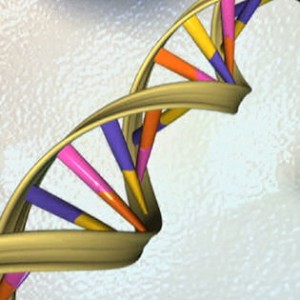The Autism Gene: Maybe Not So Scary
 The eugenic annihilation scenario has been giving the autistic community nightmares for the past six years, ever since Dr. Joseph Buxbaum predicted in a notorious article that genetic research would lead to a prenatal test for autism by 2015. With Autism Speaks funding so many genetic studies, surely it could be only a matter of time before one of these studies resulted in the discovery of the primary gene. Inevitably, a prenatal test would soon follow, causing millions of women to flock to abortion clinics worldwide.
The eugenic annihilation scenario has been giving the autistic community nightmares for the past six years, ever since Dr. Joseph Buxbaum predicted in a notorious article that genetic research would lead to a prenatal test for autism by 2015. With Autism Speaks funding so many genetic studies, surely it could be only a matter of time before one of these studies resulted in the discovery of the primary gene. Inevitably, a prenatal test would soon follow, causing millions of women to flock to abortion clinics worldwide.
Or… maybe not.
Researchers at George Washington University have just published the results of a study that identifies what may well prove to be the primary autism gene. Put into laymen’s terms by an article on MSNBC, a pregnant woman’s hormones control the activity of a gene called retinoic acid-related orphan receptor-alpha (RORA) in the fetus. More testosterone means that RORA is less active, which creates a hormonal feedback loop that causes the fetus to develop autistic characteristics. In contrast, a higher level of estrogen results in more expression of RORA.
The salient point here, with regard to prenatal testing, is that everybody has the RORA gene whether they are autistic or not. There is no extra gene or absent gene for which a fetus could be tested. Although it would be possible to measure the amount of testosterone present in the womb and then decide whether to abort based on the results, the connection between high levels of fetal testosterone and autism (discussed in much detail by Andrew Lehman both here on Shift Journal and on Neoteny.org) has been known for years because of Simon Baron-Cohen’s widely publicized research, and that scenario hasn’t happened. At most, a few parents have opted for in-vitro fertilization with female embryos out of fear of having an autistic son, which doesn’t seem at all likely to take place on a large scale.
Doctors aren’t going to give pregnant women estrogen pills or testosterone-blocking drugs to change the hormonal environment in the womb, either, because monkeying around with a pregnant woman’s hormones already is known to cause serious injury to the fetus. About a half-century ago, obstetricians often prescribed diethylstilbestrol (DES), a synthetic form of estrogen, which was thought to help prevent miscarriages. It was later discovered that as a result of having been exposed to DES in the womb, many people developed cancer or significant abnormalities of the reproductive organs. Needless to say, huge numbers of lawsuits soon followed. In light of this history, no reputable doctor nowadays would even think about prescribing hormones to a pregnant woman.
Further research is needed, of course, to learn more about the RORA gene and how it functions. The science in this area is still in its early stages, and we can’t know exactly how it will unfold. But if indeed Autism Speaks’ frenzied efforts to rid the world of autism end up proving only that it is impossible to do so, I’ll greatly enjoy the irony.
related: Autism Family History
related: Road Map
Gwen McKay on 02/23/11 in Autism, featured | 4 Comments | Read More
Comments (4)


Right back to Psalm 139, as far as I’m concerned!
“I’ll greatly enjoy the irony.”
Me too!
“sapiens aspiens”
Bon mot!
[…] came across this article on Shift Journal this past Friday, which discussed the recent results of a study conducted at […]